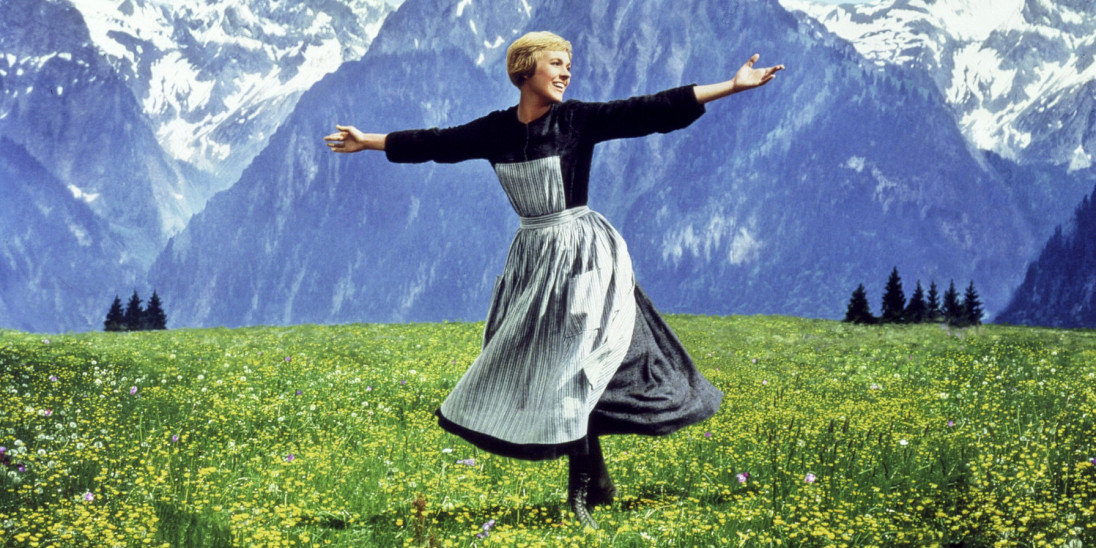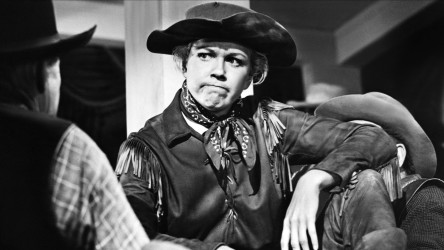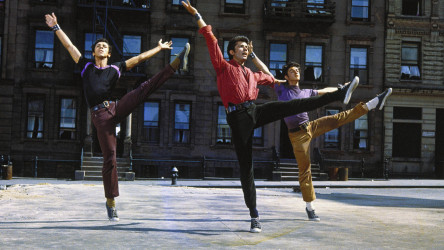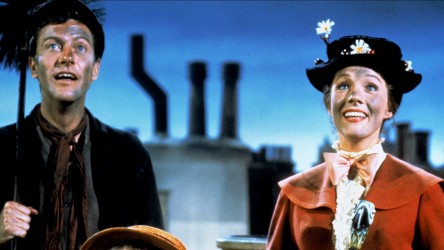The Sound of Music(1965)
Stream on Into Film+
The stunning Austrian mountains provide the backdrop for this wartime musical extravaganza.
Certificate
Age group8+ years
Duration174 mins



Musicals are one of my least favourite genres in film; from the extremely problematic “The Greatest Showman” to the cinematic travesty that is “Chitty Chitty Bang Bang”, I generally tend to avoid these types of movies. Barring a couple of exceptions (notably “The Muppet Christmas Carol”) I tend to find them unbearably saccharine and dull, so the thought of sitting and watching a nearly three hour musical did not fill me with excitement.
However, I actually quite liked “The Sound of Music”, although it definitely fell into the traps that plague many musicals during its first-half, the finale gave me a new perspective on the story and the more sugary moments. It’s transformation from a superior version of “Mary Poppins” to a white-knuckle on-the-run drama improved the film massively in my opinion, the tension giving the audience something to root for other than squeaky singing and soppy romantic drama. So overall, while “The Sound of Music” isn’t amazing, it’s a surprisingly good film (once the plot actually gets going.)
Before we delve into the positive aspects of the film, I just want to go over my issues with the first-half of “The Sound of Music.” Firstly, while some of the songs are pretty decent, a few of them are overly long, preachy and seriously hurt the pace of the story. Secondly, “The Sound of Music” features many stereotypical sequences where the characters sing about flowers and their feelings, which borders on self-parody.
The most egregious example of this is housed within the musical number with Charmian Carr and Daniel Truhitte’s characters. This scene ticks off every poor musical cliché in the book, the acting is over-the-top, both actors are obviously much older than they’re supposed to be (despite the fact that they keep telling the audience that they’re teenagers), the song is repetitive and the atmosphere is naïve and nauseating!
That being said, these sentimental scenes are much more effective in hindsight; as the plot of “The Sound of Music” becomes increasingly dark and grim, the sickeningly sugary moments seem to be used as a device to display child-like joy at its most extreme, almost as if the characters are remembering the events of “The Sound of Music” through rose tinted glasses. The aforementioned scene is more powerful when the arcs of both Rolfe and Liesl are finally completed; the viewer is then able to appreciate their love-struck duet in a different light because they know how both characters will turn out by the end of the movie.
Almost every member of the cast in “The Sound of Music” is great. Dame Julie Andrews is excellent as Maria, she brings warmth, humour and charm to the role; Andrews did a fantastic job of playing a more absorbing version of “Mary Poppins.” Christopher Plummer is suitably gruff and conflicted in the first half of “The Sound of Music” before his character grows and moves on from his past.
The child acting in “The Sound of Music” is much better than I expected it to be, the characters’ arcs that send them from frolicking in the countryside to running for their life in the third act is conveyed with suitable joy and terror from the actors.
On a production level, “The Sound of Music” is very impressive. The costumes and sets are all highly detailed and realistic and the cinematography is magnificent (the shots of the Austrian scenery and the Alps are especially breath-taking.)
The music in “The Sound of Music” is a mixed bag. There are undoubtedly some really catchy and engaging tunes (“My Favourite Things” and “Climb Ev’ry Mountain” are both highlights), but I found some of the other songs (mainly those sung by the nuns) overly long.
I can imagine that the finale in “The Sound of Music” would have been mind-blowing to audiences in the 1960s who weren’t aware that this cutesy musical was secretly a tale about the death of innocence in Europe before the outbreak of WW2, and the Nazis invasion of Austria that turned the country into a dictatorship. However, even if you know what “The Sound of Music” becomes, it’s still gripping to watch the plot unfold.
In conclusion, “The Sound of Music” is one of the greatest musicals ever made, and although that isn’t saying much, I can’t deny that this is a very fine bit of filmmaking. It goes through all of the motions that you’d expect from this genre before hurling your expectations out of the window and becoming a captivating story that stayed with me long after the movie finished. Whilst I think the less enthralling section of the film could have been trimmed down very easily, I would recommend “The Sound of Music” purely on the strength of the final (very stressful) 40 minutes.
Print this review
The musical story of a gun-toting tomboy Calamity Jane in the male-dominated Wild West and her romance with Wild Bill Hickok.
Certificate

The classic love story of Romeo and Juliet is transported to 1950s New York in this Hollywood musical.
Certificate

Stream on Into Film+
Classic film with musical scenes about nanny Mary Poppins, who is full of common sense but friends with talking animals and dancing chimney sweeps.
Certificate